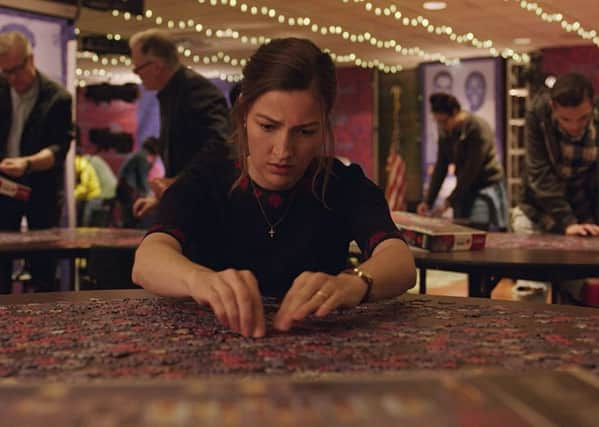Film review: Puzzle


Puzzle (15) **
Starring Kelly Macdonald as a mousy American housewife who finds respite from the bland predictability of her life by building jigsaw puzzles, this year’s Edinburgh International Film Festival opener plays more like a metaphor in search of a movie than a particularly great showcase for the often underused Scottish star.
Kicking off with Macdonald’s character, Agnes, scrambling around on the floor of her own birthday party as she searches for a piece of broken crockery, the film quickly builds on this woman-searching-for-the-missing-pieces-of-her-life imagery by having her complete a birthday-gift-sourced jigsaw puzzle in what we’re led to believe is record time.
Advertisement
Hide AdHaving spent her whole life selflessly fitting into the lives of her family – keeping her own frustrations at bay by keeping her world small and ordered – this is clearly a woman who knows where everything fits.
But this newly ignited passion for “puzzling” gradually starts opening her up to the possibility that maybe she’s not as cut out for the limited life she’s been living as she previously thought.
As tortuous and tedious as all this might sound, the film deserves some credit for the sincerity with which it approaches Agnes’s midlife crisis, especially when a rare trip to New York leads her into the world of competitive puzzling and the arms of Robert (Irrfan Kahn), a wealthy, newly divorced puzzle champion with the air of a spiritual guru about him.
It’s just too bad Agnes has been written as a sort of sub-Forrest Gump-style savant. For a large part of the film it’s unclear if she’s supposed to be on the autism spectrum or just the victim of egregious indie filmmaking quirkiness. Director Marc Turtletaub and writers Oren Moverman and Polly Mann don’t seem to know.
It’s only in the film’s final 20 minutes, when Macdonald manages to escape all the film’s suffocating symbolism, that she’s finally able to piece together a more coherent picture of someone finally taking charge of her life.
She comes into her own and so does the film. But unlike Agnes’s journey, it’s too little, too late.